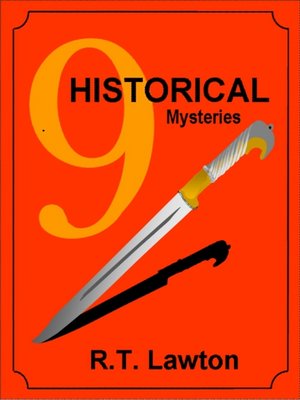 |
| Jackie Sherbow photo by Ché Ryback |
Leigh Lundin had the wonderful idea of inviting some of our favorite editors to sit for interviews. As the guiding hands at the mystery side of Dell Magazines (EQMM and AHMM) they have a huge influence on our field by bringing new readers and writers into it. Tomorrow we will feature Janet Hutchings, and Friday will star Linda Landrigan. But today we have the delightful Jackie Sherbow.
— Robert Lopresti
Jackie Sherbow is the Associate Editor of Alfred Hitchcock’s Mystery Magazine and Ellery Queen’s Mystery Magazine. She is also the editor of Newtown Literary Journal and her poetry has appeared in places like Day One, Moonchild Magazine, and Luna Luna Magazine. She lives in Queens, New York.
- What is one thing you wish everyone would know about your publications?
- First and foremost, that they (still) exist. This of course seems like child’s play to anyone reading SleuthSayers, but you don’t know how many people come up to us at events and say the words “I didn’t know you were still around,” or otherwise think we’re publishing reprints of older issues. It’s wonderful to speak with readers who have a long-time, nostalgic connection to the magazines (and/or have unearthed their parents’ or grandparents’ collections, which they remember from childhood), but I think there’s no reason why short mystery fiction shouldn’t have a wide and growing audience—especially since so many different modes of contemporary and traditional fiction fall under that umbrella and can be found in the magazines.
- What are you reading right now?
- I’m reading the short-story collection Sour Heart by Jenny Zhang, The Twelve Lives of Samuel Hawley by Hannah Tinti, and Eye Level, poems by Jenny Xie. I am usually reading two or three books concurrently, and trying to catch up on magazine or journal subscriptions too—I try to balance my reading between short stories, novels, poetry, and nonfiction at all times. Looks like I need to pick up some nonfiction.
- What other hobbies or jobs do you have?
- I’m the editor of a community-based literary journal in Queens called Newtown Literary, and I’m involved with the nonprofit organization that publishes it. I am also a writer (of poetry) and a runner (albeit a very slow one).
- Do you have any pets?
- I’ve somewhat recently adopted a small asthmatic cat named Dottie (after Miss Fisher’s companion in Miss Fisher’s Murder Mysteries). And now I’m the kind of person who has attached a photo of the cat to this e-mail.
- What great short story or collection have you read recently?
- I loved Her Body and Other Parties by Carmen Maria Machado, which came out last year from Graywolf Press and has received a handful of awards and nominations since then. A story that really unnerved me recently was “The Midnight Zone” by Lauren Groff, originally published in the New Yorker and reprinted in The Best American Short Stories of 2017. I had to put it down and give it a break before finishing it. I read a lot of short horror as well as—naturally—crime and thriller, but I can’t remember the last time I had such a visceral reaction to a story. Very uncomfortable, but very memorable.
- What do you love about short stories?
- As a poet, I’m always impressed by fiction in general: what an author can pull off in terms of plot while also concentrating on theme and form—and as we know this is accentuated in a short story, where there’s less wordly “real estate.” As an editor and reader of short fiction, I particularly find intriguing the plot and character arcs in a short story (especially when there’s a mystery—which there almost always is!). I find that in a short story, imaginative leaps, experimental form, and other playful or innovative methods can be pulled off more successfully. And I really love how reading a short story on its own and then among others (whether in a single-author collection or a periodical or anthology) can bring out something new in the work. In terms of practicality, I’m a fairly slow reader, so short stories tend to strike me more in this way than a series of novels do.
- Who is your favorite author?
- Gabriel García Marquéz.
- If you knew you’d be deserted on an island, what book would you bring?
- One Hundred Years of Solitude.
- What is your personal editorial philosophy?
- In general I edit for clarity, consistency, and then refinement in service of the author’s voice and the entirety of the piece. I think that everything in a piece of writing matters, down to the smallest element of punctuation, but that it’s important as an editor to examine the power structures underlying the use of different types of language. I think it’s irresponsible not to do this. In everyday life, I think it can be pernicious to promote unsolicited, moralized adherence to traditional correctness without thinking about it. Language is a gift and powerful tool, and I think the words, style, and usages we choose to employ (or choose not to) have a cumulative effect on our communities.
- Aside from short mystery fiction, what other parts of the genre do you enjoy?
- I am a fan of mystery novels, television shows, and movies, and I am fascinated by true crime, but I would have to say the community of writers, readers, and fans. I think mysteries bring people together. Speaking of which, thank you, SleuthSayers, for inviting me, Janet, and Linda to participate.
 |
| Dottie |
Thank you, Jackie. Tomorrow, Janet Hutchings.







































